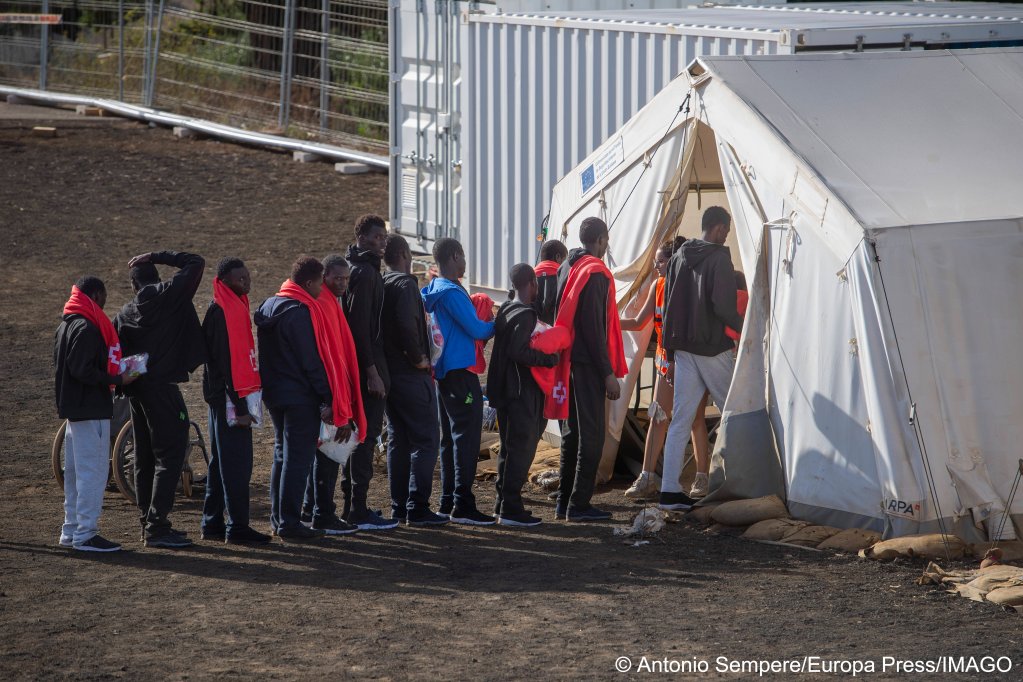Authorities on Spain's Canary Islands have introduced a vocational training initiative to help around 900 migrant youths gain skills in construction, hospitality, and agriculture. The program hopes to boost workplace integration and job opportunities.
The Department of Social Welfare on Spain's Canary Islands, in collaboration with the regional Employment Service, has launched a vocational training program for 900 migrant youths —450 in Las Palmas and 450 in Santa Cruz de Tenerife. The initiative focuses on high-demand sectors such as construction, hospitality, and agriculture, and hopes to facilitate integration and employment prospects, local media outlet Canarias 7 reported.
The program, which began in January, targets migrants over 16 years old and provides vocational training along with Spanish language courses. Participants may receive professional certification upon completion.
Thousands of young migrants, including unaccompanied minors, continue to arrive on the Canary Islands, seeking security and better economic opportunities.
Currently, the Canary Islands are hosting 5,763 migrant minors, but growing difficulties in providing adequate care have prompted authorities to transfer around 4,000 to other regions.
Earlier in February, Spain's minister for territorial policy called for an urgent "humanitarian response for underage migrants" amid reports of facilities struggling to host unaccompanied minors on the Canaries.
For unaccompanied minors, the regional government assumes guardianship and must ensure access to education.
Read AlsoCanaries: Arrivals drop by a third, 'decisive week' for distribution of migrant minors
Industries turn to migrants to meet labor shortage needs
Francis Candil, deputy minister for social welfare, said that many young migrants in the reception network, which consists of over 80 centers, have demonstrated a strong willingness to work. The initiative has also garnered significant interest from employers looking to fill labor shortages.

"There are good expectations for this project," said Candil. "We have received many requests from employers' associations in different sectors," he reportedly told Canarias 7.
Among them, companies operating in the ports of Las Palmas have expressed a need for skilled workers. Zamakona, a maritime services company, has proposed a training program focused on high-demand jobs such as boiler-making and welding for ships.
The health sector is also seeking workers, with demand for employees in Fuerteventura, according to Candil. Local authorities are currently exploring training programs to address these needs.
Read AlsoPakistan to the Canary Islands: Does a migrant shipwreck shed light on a new route?
Who is eligible?
To participate in the training initiative, migrants must be able to demonstrate they have made significant progress in obtaining legal documentation to ensure they can be employed upon completing training, according to Canarias 7. The courses, structured like professional certification programs, include modules such as occupational risk prevention.
The government aims to complete training within two months, particularly for those nearing 18.
In a similar smaller-scale initiative, all 25 participants secured jobs in the hospitality sector as kitchen assistants, waiters, and cleaners, according to Canarias 7.
The regional government has allocated approximately two million euros to fund the program, with one million euros designated for each province.
Canary islands – gateway to Europe
According to the Spanish news agency EFE citing Spanish Interior Ministry figures, the month of January saw 34 percent fewer arrivals than in January 2024.
Throughout the whole of 2024 nearly 49,000 migrants reached the Canary Islands.
The Canaries continue to be the main gateway for migrants to Spain. In January, close to 90 percent of all arrivals were registered there.
The total number of arrivals to Spain also declined by 32.4 percent compared to the same period last year -- the first decrease in 18 months.
